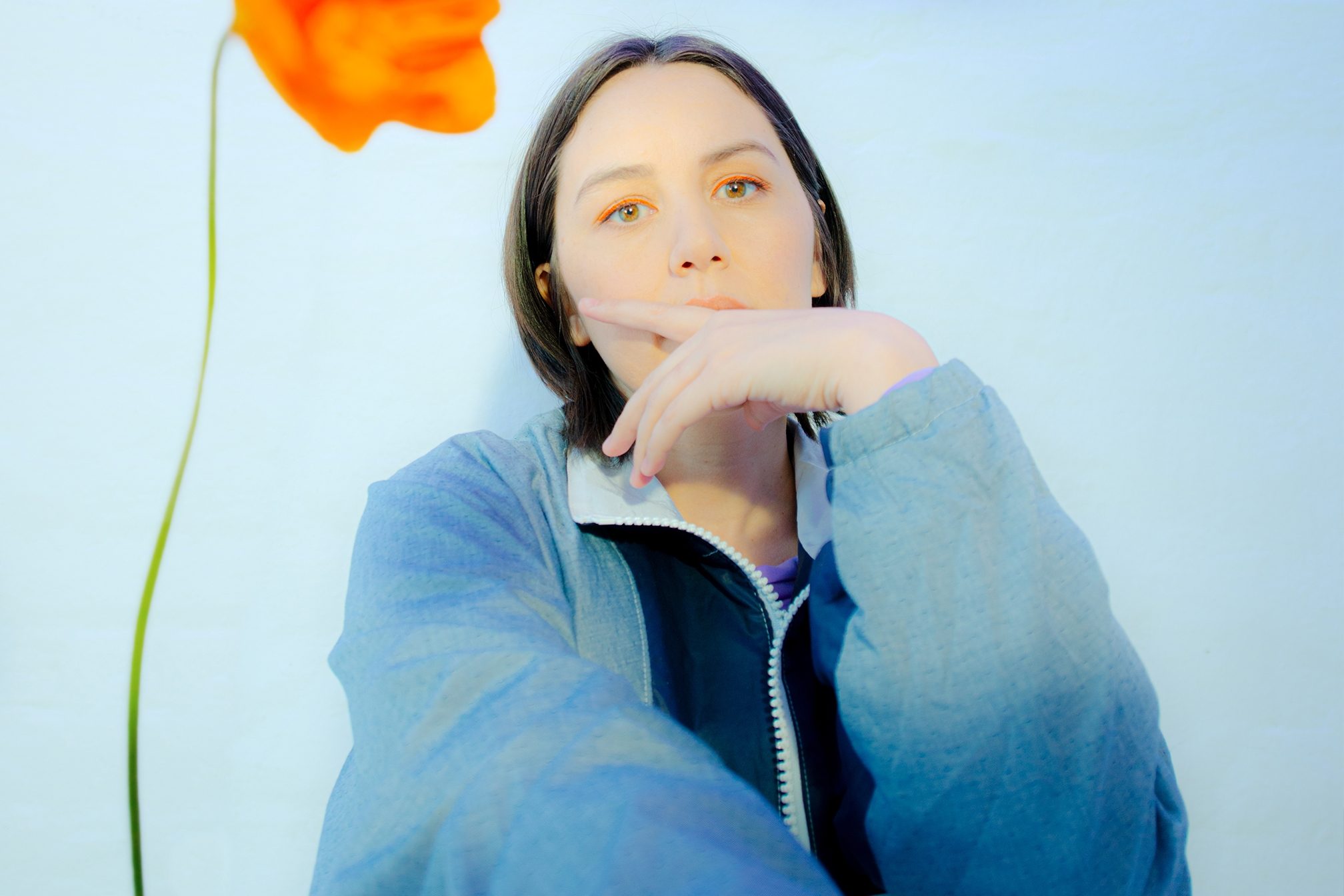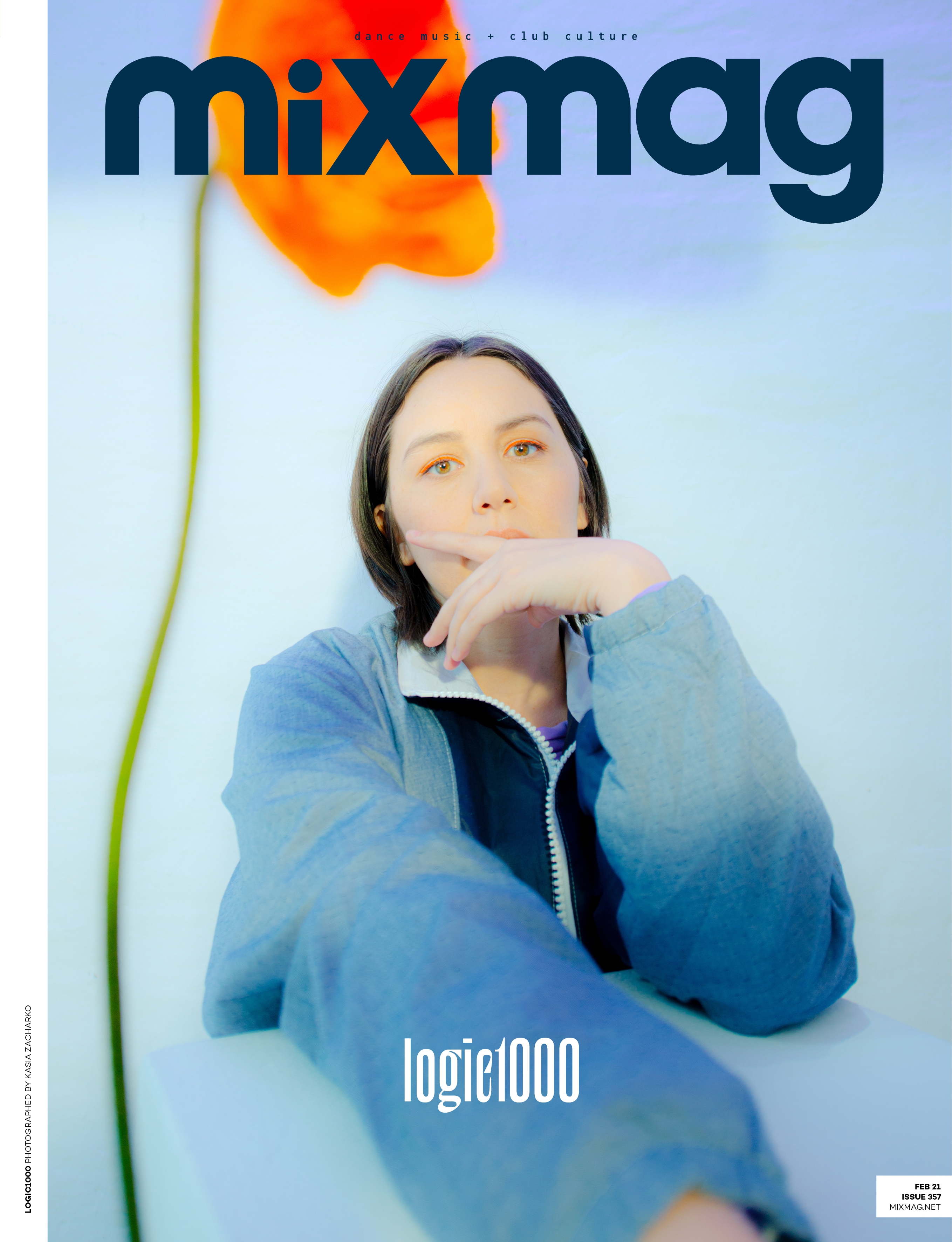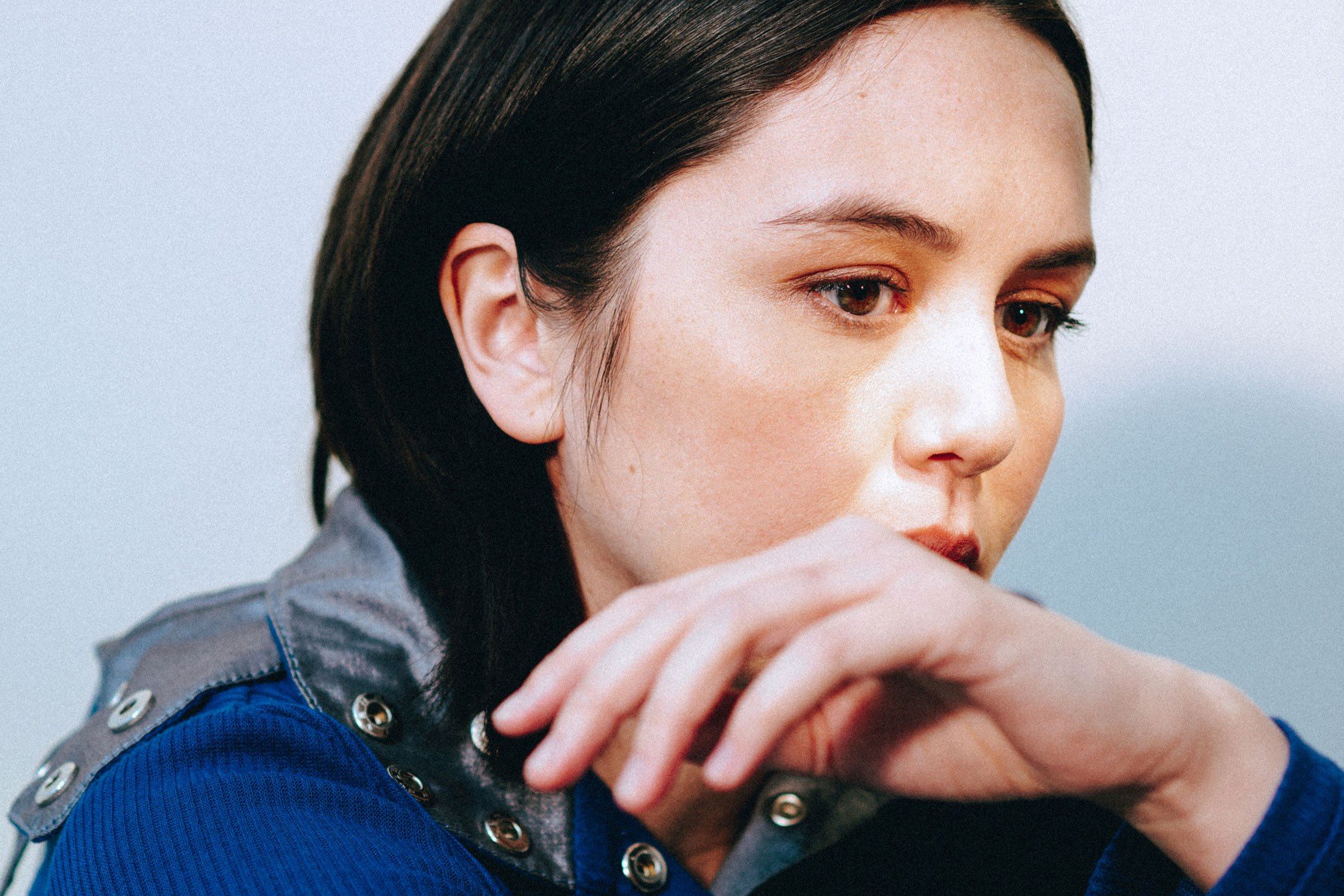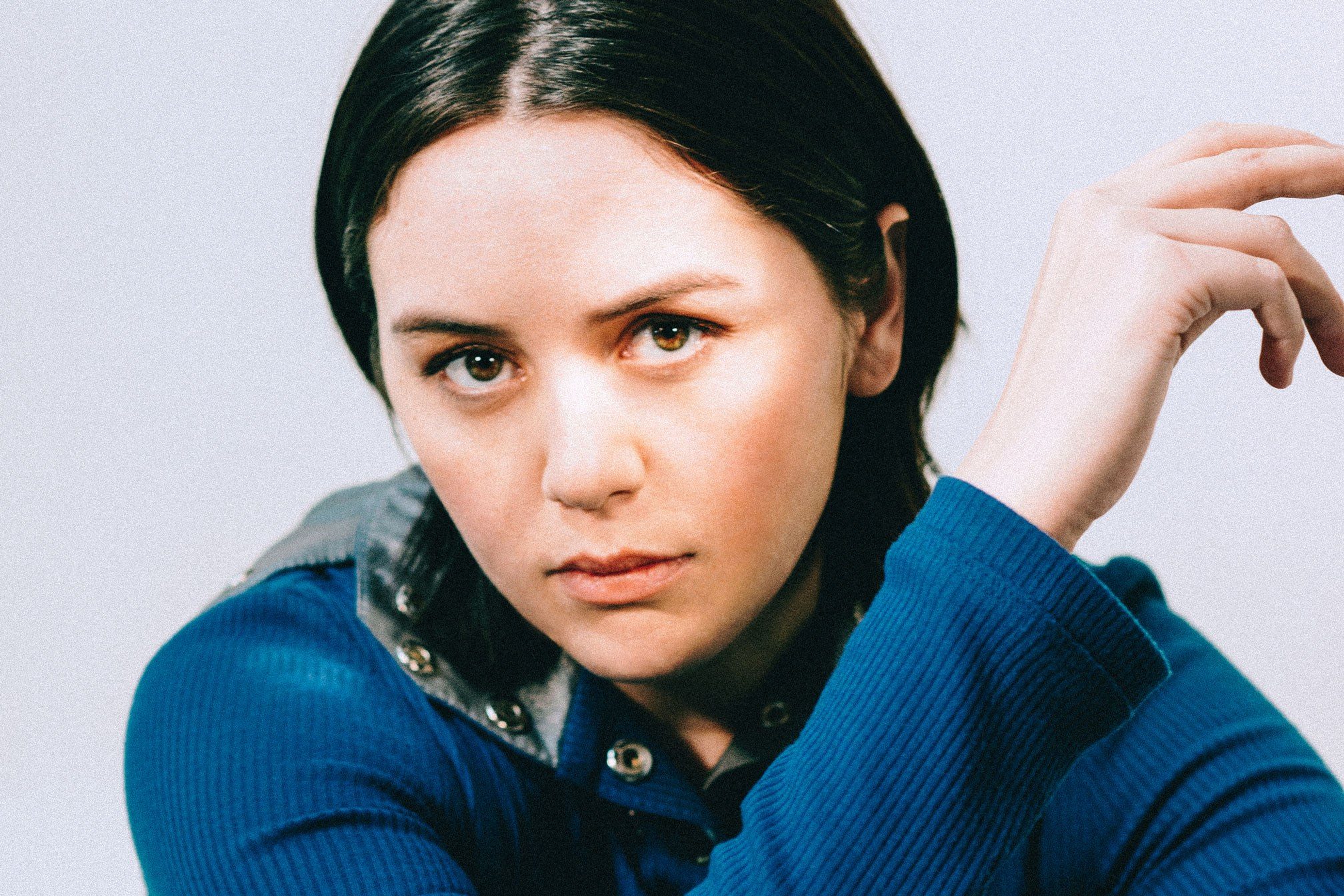 Features
Features
"A form of therapy": Logic1000 and the healing power of dance music
Jemima Skala talks to breakout star Logic1000 about music's therapeutic qualities, her artistic process, and the humble ambition that means hype won't go to her head
Though only on her second release proper, the fast-rising Australian DJ and producer Logic1000 is swiftly finding her feet and has already reached beyond the underground to find a larger warm and welcoming audience across the globe. Whether trying her hand at dark, murky house, garage or tight and precise techno, her productions are characterised by biting beats and an intuition for pop-ready hooks that cut through to a more universal current of feeling: that everyone just wants to dance, really, whatever their musical persuasion.
Samantha Poulter’s musical career has always tipped the balance between underground and mainstream in a remarkable way. After coming to music fairly late at the age of 29, she began putting her early productions onto SoundCloud, and a musician friend with a larger following reposted her track ‘Perfume’, which was given an official release last year. “I started to get a little bit of traction and labels were getting in contact and stuff, but I didn’t really take myself seriously until the release of the EP,” Poulter remembers. She’s referring to her debut self-titled release that has now racked up several million streams on Spotify, in part thanks to early support from Four Tet, who played out her breakthrough track ‘DJ Logic Please Forgive Me’ at his 2019 Coachella set after tweeting it out to his large following.


At the same time as being launched into a wider public consciousness, Samantha was also seeing the same track be supported by acts on Boiler Room’s tastemaker event and livestream series Bass & Percs. With dual support and validation from both mainstream and underground audiences and now getting her debut digital Mixmag cover, the foundations had been laid for Logic1000’s swift ascent. Looking back on her first release, Samantha sees someone unsure of herself and her sound. “I didn’t really see myself as a producer and I had no idea what my sound would be, so I was just approaching it as making tracks. I think it was a bit hodgepodge. I was just making the music I wanted to hear.”

With the recent release of her second EP ‘You’ve Got the Whole Night to Go’, there’s been a subtle but noticeable shift in both her vision and confidence as a producer. The EP moves from the delightfully airy trance-esque ‘Like My Way’ through the out-and-out house of ‘I Won’t Forget’ (which features an approved sample from Master At Work Louie Vega), culminating in the darker techno of ‘Medium’ and ‘Her’. It showcases a more consistent vision of what Samantha wants Logic1000 to be.
Read this next: Logic1000's 'Medium' is made for the taxi ride to the club
‘You’ve Got the Whole Night to Go’ was written in the first lockdown and was intended as a positive manifestation of the good times to come. She took an older track, ‘Her’, and built the EP out from there. “I wanted to make music that was uplifting and had a sense of movement because we were so stifled,” she says. “I felt so trapped that I guess I wanted to make music that could reflect what I was wanting out of life at that point.”


To craft her signature sound is in fact a collaborative process; Samantha doesn’t “man the mouse”, as she puts it, but works with her partner Thomas McAlister, who himself produces as Big Ever, formerly Cop Envy. “I’m just not a technical person, I think it’s computers I struggle with.” She clarifies that working so closely with a second person doesn’t compromise her own creative vision for the Logic1000 project: “I definitely have really strong opinions when it comes to making music. If I don’t like something, I’ll make sure it’s not in there, and if I do like something or if I want a certain sound, I’ll express that.”
This collaborative approach comes with its advantages for the project, but Samantha says it’s sometimes difficult to establish her own sense of musical individuality. “It’s been a bit of a struggle, I guess, because working, living and having the same friends and also trying to maintain your own identity can be really tough when you do everything with someone, but ultimately we’ve figured out ways to manage that and our own identities. I think we make it work.” To do so, she’s had to build up her own confidence in her musical intuition to work through issues of imposter syndrome. “I trust that these ideas that I have for songs are mine and though I do work collaboratively with Tom, and this is as much his project as it is mine, I do feel like it wouldn’t be what it is without me,” she says. “Knowing that has given me confidence. That’s how I work through the imposter syndrome, because Logic1000 is a reflection of me.”
Read this next: Imposter syndrome in the music industry is rife, but it's not impossible to overcome

When approaching creating music, Samantha now relies strongly on her intuition. “I never really go into a writing session knowing what I’m going to make – I don’t have a song in my head. I go in with a mood or an idea, but it’s never planned.” The process will start with Samantha asking Tom for something, maybe a kick drum; they go through all their banked samples before Samantha finds one that she likes. From there, a fuller picture will start to form in her head of how she wants the track to take form. To play more to her intuitive strengths, she wants to get some more gear to play around with. “I think by having gear to play around with in my hands and really feel it that way, I’ll feel more confident in myself. Gear is really physical and that’s what I crave. Just sitting with a mouse is a little less inspiring. That’s why I like to express my ideas vocally.”
Though she’s very naturally settled into music and into a failsafe production method, Samantha dabbled in many different professions – childcare, floristry, running her own clothing store, working in mental health as a peer support worker, and a brief stint as a psychology student – but nothing stuck like music has. “It never felt like it was me,” she explains. “I never felt so sure that this is what I wanted to do, and that’s why I kept changing. I think music has stuck because it’s something I adored as a child. I came from quite a musical family, and it has always been such a huge part of my life and added so much value to my life. Now that I’ve found a place within the dance music community that I fit into and feels right, I feel like it’s going to stick for a while hopefully. Even if things turn to shit,” she laughs, “I’m always going to make music because it’s a form of therapy, I guess. I find it really therapeutic creating something from scratch and knowing it’s never been made before. There’s something so rewarding about that.”

Now nearly 35, Samantha has settled into herself in a way that feels sustainable for a long-term career in music that might not have been possible if she had come to it in her twenties. She has been very open in recent times about her struggles with depression, anxiety and schizophrenia, and thinks that she might not have been able to weather the music industry if she had entered it earlier. “I’m super grateful for all of my life experiences that I had in my twenties, but if I went into music and was achieving the things that I am now back then, I don’t think I would have survived. In your twenties, you just want to party and see your friends. I didn’t have enough focus on work and what I wanted to do – although maybe that’s because I hadn’t found music yet,” she concedes. “But I was caught up in partying until I was 25, and I think if I was in the music industry at that age, who knows what could have happened. I just feel like it wouldn’t have worked out for me.” She pauses and says, “I really like getting older because I feel like I’m less influenced by my friends and the zeitgeist. When you’re 34, you’re more introspective and focused on what you want to do.”

Samantha is very clear that being in music has allowed her to manage her mental health in a way that’s far easier than other jobs; as well as music-making being therapeutic for managing her anxiety and depression, the lifestyle that she’s settled into over lockdown has been a much-needed reset. With gigging being impossible this past year, she’s been able to throw herself into creating music and managing her schedule to reduce the triggers for her schizophrenia. She has the freedom to dictate her own hours, so she’s more able to get the ten or eleven hours of sleep prescribed to her by her doctor – “like, I need sleep” – as well as having the time to make healthy food packed with fruit and vegetables. “It sounds so silly, but just having the time to look after myself is the greatest privilege that this job has afforded me.”
Read this next: How the music industry condones a culture of excessive substance use
She’s also sober, and has been for ten years, because taking drugs was the biggest trigger for her schizophrenia. Having had time away from gigging and the culture that surrounds it, Samantha is emphatic that much needs to be done within dance music to create more empathy and awareness of sobriety as an alternative way of operating as a DJ. She notes the pressure mounted by promoters in Australia to “get wasted”, though she says it’s better generally in Europe, and cites the Miss World promoters in Edinburgh as having been particularly accommodating of her needs. “I said to them that I really need to meditate and just relax and sleep before the show, and they didn’t put any pressure on me to come to the DJ dinner. I did in the end, because I didn’t feel pressured to do all the things I was supposed to do. I knew they wouldn’t be pressuring me to have a drink or take drugs.” The key to this change, she notes, is empowering artists to be vocal about their own decisions, which is partly why she’s decided to be so open about hers. “I feel really good about that because if it means that promoters somehow see that, then they’re going to be really respectful of my needs. Hopefully that’ll also give other artists the courage to talk about it as well.”

In spite of the undeniable success of ‘You’ve Got the Whole Night to Go’, Samantha is trying to live quietly, managing her expectations and her goals during this incredibly uncertain time. Though she’s fortunate enough to be making a living from her music – she stresses that her income has been shrunken significantly by the lack of DJ gigs – her ambitions for Logic1000 as a project are humble. Her biggest personal goal at the moment is to work in a studio with some vocalists, ideally Christine and the Queens, who she produced a remix for last year and of whom she’s a big fan, or Erika de Casier. “It’s a humble ambition,” she laughs, “but during these times we have to pare back our goals.” Her humility and self-effacing nature throughout the interview are striking; on three separate occasions she apologises for “ranting”. Logic1000 clearly isn’t one to allow herself to be pumped full of hot air because of public attention and will remain focused on forging a better artistic self. The charm of her productions and her personality is her constant self-improvement. ‘You’ve Got the Whole Night to Go’ is a traceable evolution of the tentative uncertainties of ‘Logic1000’; wherever she goes next, resting on her laurels simply isn’t an option.
Logic1000's ‘You’ve Got the Whole Night to Go’ EP is out now via Therapy, get it here
Jemima Skala is Mixmag’s Weekend Editor and freelance writer. Follow her on Twitter
Read this next: Get the best of Mixmag direct to your Facebook DMs


